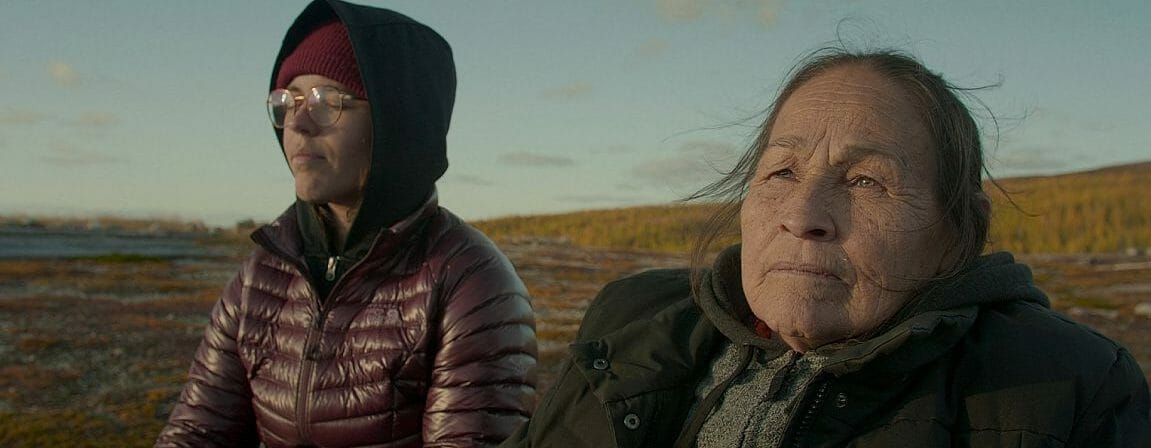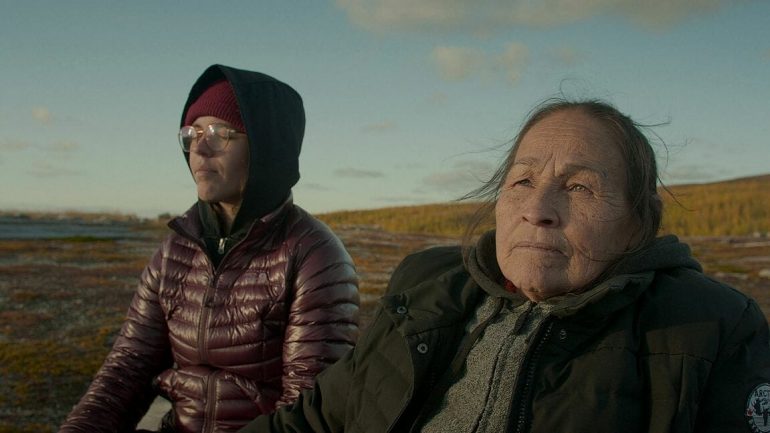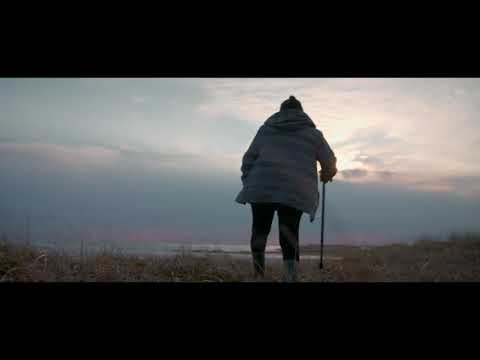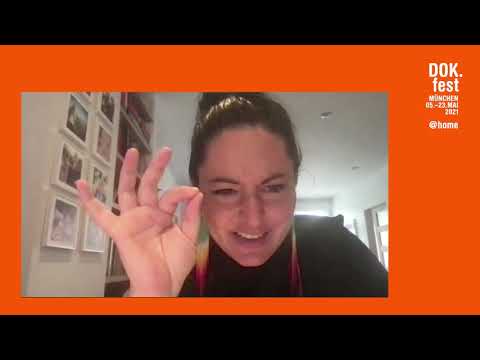
Canadian writer Josephine Bacon writes poems in the language of her ancestors so that their words are not lost. The film “Jay Mappel Humane” accompanies the poet on a visit to the elderly. DOK.fest Munich will show the film as the German premiere on the Internet until Sunday (23.05.21).
With a stick, assistant and crutches, the younger woman seems to wander throughout the film. “In the language of my ancestors,” Josephine Bacon says, in the beginning, “there were no words for poetry and poetry”. Elders were connected with nature. Everything was lyrical.
Josephine Bacon was born in the Inu family in northwestern Quebec, Canada. Today the 74-year-old lives in Montreal. But she is still a nomad of Tundra, she writes in one of her poems. She came to poetry late. Bacon worked as a translator, documentary filmmaker and composer. Josephine Bacon writes in the language of her ancestors to keep her words alive.
In the film of Canadian Indigenous filmmaker and human rights activist Kim O’Bomswin, we see Bacon in favor of her younger colleague Marie-Andrei Gill, an Inu. Both are awaiting a stage appearance in Montreal. In 2019, Josephine received the “Prix des Liberares du Québec”, the Quebec Bookshop Award for her book “Uisch / Quelk Part”.
Then we pass through slushy Montreal with Josephine Bacon. It is on the site of a brightly lit modern gas station. In 1968, Josephine was homeless when she arrived in the city, and she slept here in what was then a gas station. She visited a modern bar and approached the art scene.
Josephine almost always laughs in the film. But she does not want to tell much about her school days in the 1960s. Inu’s children were separated from their families and sent to a Catholic boarding school for “Indian children”. The nuns subjected the children to strict discipline. Was dancing, but there was also a march.
Also along with Marie-Andre Gill and the film team, Josephine sets out on a journey to the land of the tundra and her ancestors, the elders. They are searching for Papakasik, the ruler of Caribou.
You are sitting on the banks of the lakes, looking at the horizon. As the elders did.
A atmospheric film with images of nature, amazing music and poems of Josephine Bacon in Inu and French.
The film will premiere in Germany on May 23, 2021 on its website DOK.fest Munich @Home got to know. Someone can reach 6 euro individually. for Or as part of the Digital Festival Pass, which gives you access to all 131 films from 43 countries shown.
Canada is the guest country of the Frankfurt Book Fair this year. The film »J M’Appel Human / Call Me Human« is part of Canada’s cultural program as Guest of Honor at the Frankfurt Book Fair 2020/21. The film is nominated for the Kinokino Audience Award, donated by BR and 3sat. One on YouTube. is Conversation with director Kim O’Bomswin To see.
My name is man. Author: Kim O’Bomswin. Camera: Hugo Gendron, Michelle Valicut. Sound: Lynn Trepanier, Luke Raymond. Editor: Alexandre Lachance. Music: Ellen Auger. Production: Terre Innu. Producer: Andrey-Anne Frenette. Length: 4 minutes. French with English subtitles.

Devoted web advocate. Bacon scholar. Internet lover. Passionate twitteraholic. Unable to type with boxing gloves on. Lifelong beer fanatic.







